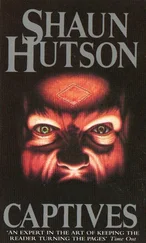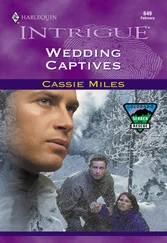Norman Manea - Captives
Здесь есть возможность читать онлайн «Norman Manea - Captives» весь текст электронной книги совершенно бесплатно (целиком полную версию без сокращений). В некоторых случаях можно слушать аудио, скачать через торрент в формате fb2 и присутствует краткое содержание. Год выпуска: 2014, Издательство: New Directions, Жанр: Современная проза, на английском языке. Описание произведения, (предисловие) а так же отзывы посетителей доступны на портале библиотеки ЛибКат.
- Название:Captives
- Автор:
- Издательство:New Directions
- Жанр:
- Год:2014
- ISBN:нет данных
- Рейтинг книги:3 / 5. Голосов: 1
-
Избранное:Добавить в избранное
- Отзывы:
-
Ваша оценка:
- 60
- 1
- 2
- 3
- 4
- 5
Captives: краткое содержание, описание и аннотация
Предлагаем к чтению аннотацию, описание, краткое содержание или предисловие (зависит от того, что написал сам автор книги «Captives»). Если вы не нашли необходимую информацию о книге — напишите в комментариях, мы постараемся отыскать её.
Captives
This is a moving account of a country shaken by communism and anti-Semitism and haunted by recent atrocities, from "a distinguished writer whose vision of totalitarianism is close to Kafka's cloudy menace, universal yet internalized" (Richard Eder,
).
Captives — читать онлайн бесплатно полную книгу (весь текст) целиком
Ниже представлен текст книги, разбитый по страницам. Система сохранения места последней прочитанной страницы, позволяет с удобством читать онлайн бесплатно книгу «Captives», без необходимости каждый раз заново искать на чём Вы остановились. Поставьте закладку, и сможете в любой момент перейти на страницу, на которой закончили чтение.
Интервал:
Закладка:
Your scream broke off, useless as baying at the moon.
You wrenched your hands from the icy wall, touched your forehead with your fingertips. Your eyes had closed. . You were in the corridor once more, inside the nightmare of a long, vaulted corridor. Your fingers felt for your lips and throat, in case they had somehow grown old and shriveled. Hadn’t some friend or brother crossed the corridor too, hearing how you cried in your sleep, ages ago, before you turned into an old woman trapped between narrow walls and buried forever?
There hadn’t been anyone. Not one person heard the cries of your pitch-dark terror. But day invaded. The illusion broke: light struck your eyes, amazed by this repeated, recognized dawn. You were the same as yesterday, punished by the long wait, the cold and endless corridor.
• • •
Out of the stillness or disquietude of waiting, the red orb will follow the rotating ray. The advance opens purple curves onto the burned sky of stars and lights still-becoming: incandescent trajectories.
That waiting was just the hesitation at the starting line, a premise that begins with possible death or liberation for other births and other deaths. The moment for movement had to come: for the blood or fire to become a red projection that gives birth to curves, spirals, serpentines, stairs, and steep trails for the hurried traveler heading toward nowhere. It had to come, for YOU are the mate, the partner, the second person who names the living or the dead, the dialog that separates and gives birth, the mobile point, a step away, a rest stop: you are THE OTHER , come to disrupt our sleep, attack our panic, you are isolation or indifference, the confirmation that we exist.
They would have to set out: the rotating spirals on which you must arrive at the moment, YOU , the change, the transition and transaction, the offering from somewhere remote, distant, and unknown, or from the unstable — doubling or dividing — self, from duality, or the choreographed special effects with which we contain ourselves, divide ourselves, make ourselves whole, fragment ourselves, multiply ourselves, and destroy ourselves.
• • •
The one who delayed would need to be punished in the end.
He will go downstairs in the morning — the son of the earth will run toward any shelter where he can be alone and free. An ordinary morning: the mannequins, Mişa the comrade spy, then the exchange of calm, cretinous words, the rumble of typewriters, the rotation of upholstered doors, Sebastian Caba’s smile. From the neighboring workstation, you would continue stalking the fugitive, who couldn’t be stopped by you.
He will meet the rain, crucified on the decayed wall, Christ-like among the ruins, exposed to pedestrians and patrols.
Smiling, he was running away from your expectations, likeness and light, greedy for a violent and total gesture to shatter reality, the out-of-tune melodies of submission and hypocrisy, the deaf-and-dumb complicity of the suspects — finally ready to kill the grotesque caricature of the fat, needy, puerile dreamer and the places for senile caresses.
The room of topsy-turvy objects, piano keys yellowed by blunt fingers, solemn candlesticks standing like telephone poles, jam jars near the towel stained with shoe polish, teaspoons choked with grease. Strange little creatures with five eyes and thirteen wings, oozing yellow liquids. In such a cell he will try to remember, but the past is without return. Pencils tipped with marmalade, socks wrapped around sugared rolls, needles perforating the pages of books, scores with sticky covers. He’ll pull a book off the shelf and find a knife blade between his fingers, he’ll move the chair and clay buttons will plop to the ground, he’ll look for the electric outlet and an alarm clock will ring, his hand will be swallowed by dust, and his shoulders will hunch as though weighted down with heavy armor. The fugitive will pound the walls to find out if the fruitless day isn’t just a mistake or some hallucination, if destiny has prepared the right place for crime and salvation.
You know his story. You see him. You foresee him. You are the shadow that pines for betrothal.
The stranger — the absent one trapped between the four hundred walls of a random cell (as among four or forty mute winds) — will be refused the answer left behind with the second person, the counterpart from whom he has fled.
• • •
A summer morning, a vast marble staircase, a white screen catching the faintest glimmer of light. . somewhere a dark corridor. . somewhere, fragile windows continued rotating the light. The girl in the dream leaned on a wall somewhere, just as she had once leaned on the thick, rough tree trunk in the east of the plain. The encounter was announcing itself, finally: there, at the end of some infinite stairs, the victim awaited the end of the summer day. In the sunless tunnel, a hand had clutched the walls. Suddenly, a cheek appeared: impatience illuminated moist eyes. Then the blue shirt gleamed. The familiar rustle, smile, the momentary hesitation. It seemed he was remembering something. He stopped, came closer.
— Won’t you come with me to the movies this afternoon?
You understood: it was no longer the customary wandering among books and chimeras and questions without answers; it was no longer the circular residue of coffee in which you looked without the courage to pronounce the name of the expectation, in which you continued your precautionary wandering. You squeezed the ticket stub between your fingers. You were smiling, relaxed, as the chosen of the gods used to await the fulfillment of their foretold deaths. The death sentence should be fingered, fondled, ridiculed, chased away like a phantom, like a false storm, but the victim is smiling, the mistress of fatality. She’s the princess from a fairy tale, from a living and lucid dream whose finale will freeze the readers’ blood.
You laughed, you joked, you dispatched words — that was the game. The palm of your left hand rubbed against the oily wall. The ticket fluttered between the trembling fingers of the other.
The summer afternoon halted as the lights came down. Suspended hours, whitewashed air: windows open, the rooms seemed to float in the inertia of the day. In the silent corridor, a thin, elongated being with a white face and wide-open eyes floated freely, until swallowed by thin, aromatic winds.
The new movie theater’s waiting room was high and long. Because of the burning heat, only a few people attended — many people were at the stadium or dancing in the outdoor cafes. Or perhaps it was because of the obscure Russian title of the film, or because it was about war, and somewhere else they were playing movies with romantic knights and beautiful ladies.
Words had breathed their last that morning, so you took your seat mutely, glad to have nothing asked of you. Images flowed from the screen, so you couldn’t look at anything else: the mirror of the well, the bucket drenching the boy’s fair cheek, then the powerful, fresh-faced mother, laughing — the two of them momentarily reflected then blown apart by the explosion of water under the smoke of war. Little Ivan passed through the nights to the gentle purling of occupied rivers, his face increasingly fierce and aged. You gave a start without looking at your neighbor, who didn’t seem to react in any way.
— You were a child during the war, weren’t you?
Your whispered words came out like a tremor. He didn’t reply. On the screen, the boy’s fair face eclipsed the darkness and silence, along with the long, sad horses eating apples down by the seashore. When the darkness dispersed, the audience rose, reconciled, ready for other stories.
You stood. You kept silent. It was almost evening. Together, you crossed through a long, deserted street, passing under the tall buildings. Cars rushed by. Steps resounded on the sidewalk as if on glass. The shop windows were coming alive. To the right, a side street opened. He followed a step behind, a step below. You opened the apartment door. He came from below, a step behind you.
Читать дальшеИнтервал:
Закладка:
Похожие книги на «Captives»
Представляем Вашему вниманию похожие книги на «Captives» списком для выбора. Мы отобрали схожую по названию и смыслу литературу в надежде предоставить читателям больше вариантов отыскать новые, интересные, ещё непрочитанные произведения.
Обсуждение, отзывы о книге «Captives» и просто собственные мнения читателей. Оставьте ваши комментарии, напишите, что Вы думаете о произведении, его смысле или главных героях. Укажите что конкретно понравилось, а что нет, и почему Вы так считаете.












